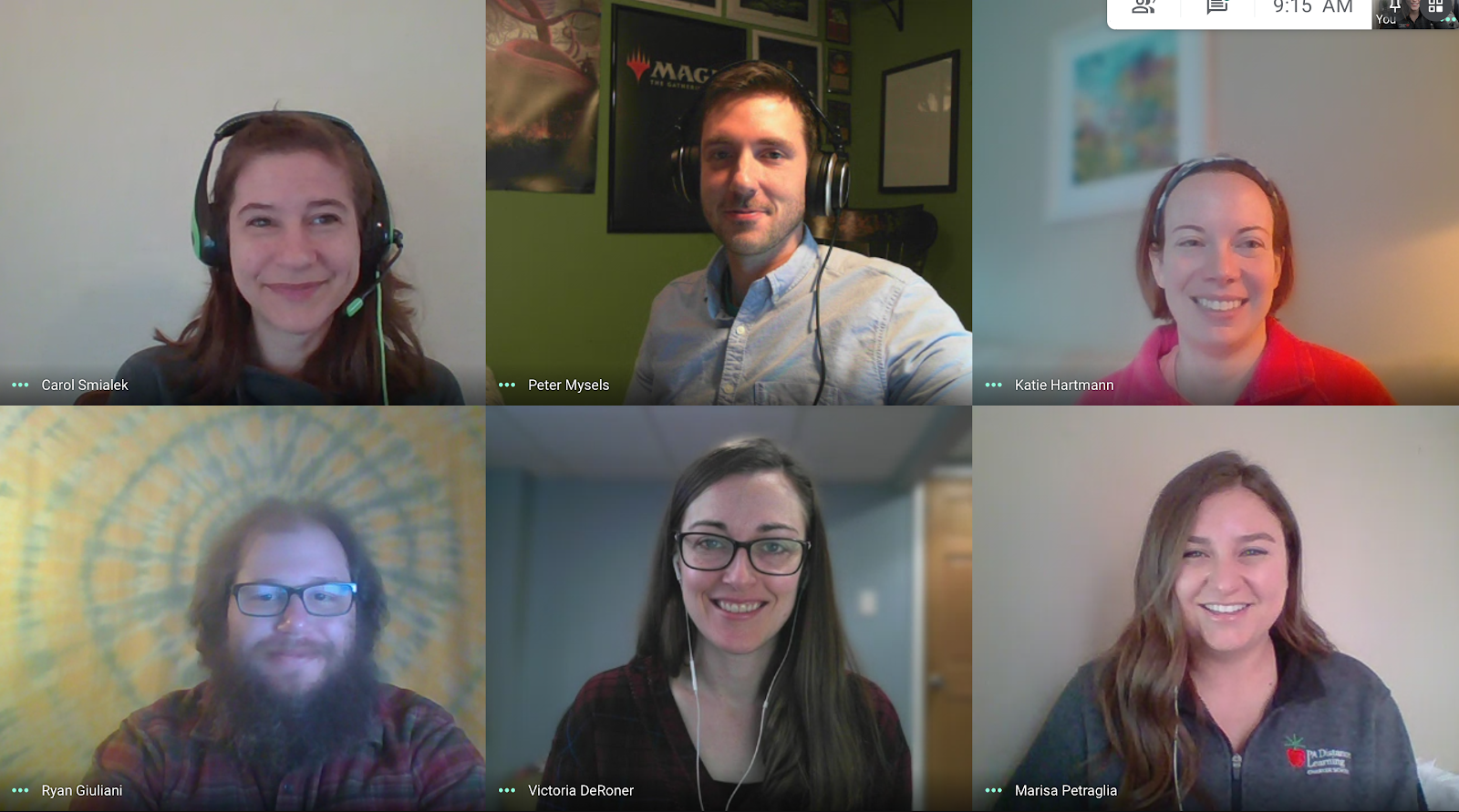
The PA Distance Social Studies department teachers are known for bringing the outside world to each of their virtual classrooms. From world geography to psychology to financial literacy, our six social studies teachers create fun and interactive lessons to broaden their student’s knowledge and views of the world.
Collectively, the social studies department works together to provide a variety of interesting course options to satisfy each high school student’s credit requirements. These options include Mythology, History of the Holocaust, World History, U.S. History, World Geography, United States Government, Economics, Sociology, Psychology, Social Changes, Honors World History, Honors U.S. History, Honors Cultural & Literary Studies, AP European History, AP Psychology, AP U.S. History, and AP World History.
Although each class is taught virtually, the social studies teachers have different ways to keep it engaging while also bringing their personal passions into the classroom.
“Traditionally, our department does a lot of virtual assemblies and field trips to collaborate with each other,” History of the Holocaust, U.S. History, U.S. Government, and Honors Cultural and Literary Studies teacher, Mr. Mysels, said. “I’m excited to bring my volunteer role at the Holocaust Center of Pittsburgh into my classroom as a possibility for a virtual field trip,” Mr. Mysels added.
They maintain that it’s important to bring the outside world into the classroom as best as they can, using their own experiences to help paint a picture.
“I’ve traveled a lot and try to bring my personal experiences into the classroom a lot,” he said. “If we don’t know history we are doomed to repeat it.” Honors U.S. History, Economics, World Geography, and Sociology teacher, Mr. Giuliani said.
“Some of our students haven’t had the opportunity to travel yet so we try to bring the world to them and really enjoy doing it,” noted Financial Literacy teacher, Mrs. DeRoner.
“Social studies has so many valuable lessons that are applicable to everyday life and I want my students to understand that,” U.S. History, Mythology, and Social Changes teacher, Ms. Smialek said. “My Social Changes elective is all about how people respond to the changing needs in society. It’s like a Sociology Class and Current Events mixed.”
On the opposite spectrum, Mrs. DeRoner teaches her classes about the importance of making smart financial decisions.
“I want to empower my students and help them learn important financial tools while they are young,” Mrs. DeRoner said. ‘It’s something that I am passionate about and it helps me be a better teacher.”
Mr. Mysels makes a point to teach his students to care about what is going on in the world around them.
“In my mind, social studies is the content area where I have the best opportunity to engage and motivate students to care about each other, themselves, and the world around them and to help them understand the impact they have as individuals,” Mr. Mysels explained.
“All of our subjects are so closely related to each other and I love being able to tie everything together across each subject,” World History and World History Honors teacher, Ms. Hartmann, explained.
To add to the curriculum, the Social Studies department recently created a Civic Knowledge assessment that PA Distance students must take and pass before graduation
“It’s a rigorous assessment but it’s engaging,” Mr. Mysels explained. “It’s all practical information that pertains to everyone and that everyone should learn.”
“We based it off of the actual U.S. Citizenship Test,” Ms. Smialek said.
The social studies teachers have monthly departmental and collaboration meetings where they bounce ideas off of each other. The group’s ability to work well together not only benefits themselves but the students as well.
“Everyone in our department is passionate about their subject matter and I think that’s really cool,” Psychology and AP Psychology, Child Development, and Family & Consumer Science teacher, Ms. Petraglia, said.
“We, as a team, all work really well together and have productive meetings to come up with new ideas for our classes,” Ms. Smialek, explained.
“We value each other’s opinions,” Mr. Mysels said. “We are constantly going to each other to get their opinions and suggestions. We make each other better.”
“It’s really great to be able to go to work every day and enjoy being with your coworkers,” said Ms. Hartmann.


